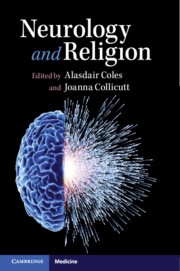Book contents
- Neurology and Religion
- Neurology and Religion
- Copyright page
- Contents
- Contributors
- Preface
- Part I The Neurological Study of Religion
- I.I The Natures of Neurology and Religion
- Chapter 1 The Discipline of Neurology
- Chapter 2 The Scientific Study of Religion
- Chapter 3 Methodological Hazards in the Neuroscientific Study of Religion
- I.II Philosophical and Historical Issues
- Part II Neurology and Religion
- Bibliography
- Index
- References
Chapter 2 - The Scientific Study of Religion
from I.I - The Natures of Neurology and Religion
Published online by Cambridge University Press: 28 October 2019
- Neurology and Religion
- Neurology and Religion
- Copyright page
- Contents
- Contributors
- Preface
- Part I The Neurological Study of Religion
- I.I The Natures of Neurology and Religion
- Chapter 1 The Discipline of Neurology
- Chapter 2 The Scientific Study of Religion
- Chapter 3 Methodological Hazards in the Neuroscientific Study of Religion
- I.II Philosophical and Historical Issues
- Part II Neurology and Religion
- Bibliography
- Index
- References
Summary
Is it possible to study religion scientifically, and if so does it make any sense? This chapter briefly explores the relationship between scientific and religious accounts of reality before setting out some of the key historical landmarks and current issues in the scientific study of religion.
- Type
- Chapter
- Information
- Neurology and Religion , pp. 6 - 11Publisher: Cambridge University PressPrint publication year: 2019



